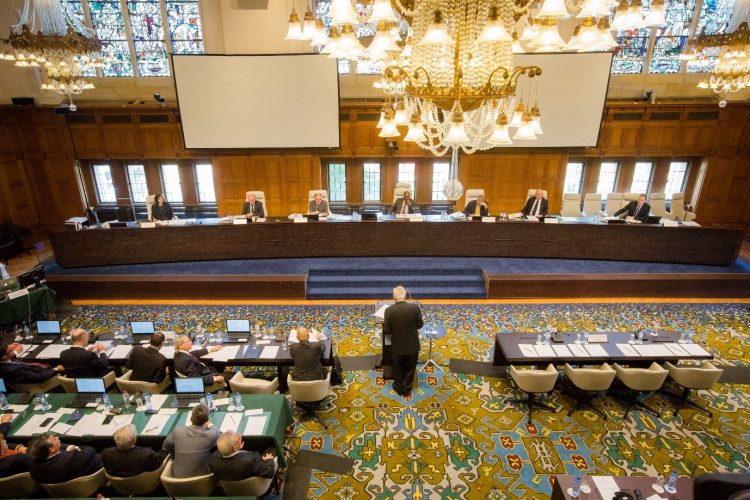
MANILA, Philippines—Various countries have welcomed the verdict of the Permanent Court of Arbitration (PCA) who ruled in favor of the Philippines over China in the matter of the South China Sea dispute, stating that China’s ‘nine-dash line’ claims are contrary to the United Nations Convention of the Laws of the Sea (UNCLOS), an international agreement the Philippines and China are parties of.
“As between the Philippines and China, China’s claims to historic rights, or other sovereign rights or jurisdiction, with respect to the maritime areas of the South China Sea encompassed by the relevant part of the ‘nine-dash line’ are contrary to the Convention and without lawful effect to the extent that they exceed the geographic and substantive limits of China’s maritime entitlements under the Convention,” read the ruling.
In lieu of PCA’s ruling, here are the countries who have welcomed the Arbitral Tribunal’s verdict:
India
In a statement released by the Ministry of External Affairs of the Indian government, India recognized that the “sea lanes of communication passing through the South China Sea are critical for peace, stability, prosperity and development.”
India, a party to the UNCLOS, urged all other parties to show utmost respect to the international agreement.
“India supports freedom of navigation and over flight, and unimpeded commerce, based on the principles of international law, as reflected notably in the UNCLOS,” the statement read. “India believes that States should resolve disputes through peaceful means without threat or use of force and exercise self-restraint in the conduct of activities that could complicate or escalate disputes affecting peace and stability.”
Japan
Japan, an ally of the Philippines, said Tuesday that it “strongly expects” the compliance of all parties to the award of the Arbitral Tribunal.
“Japan strongly expects that the parties’ compliance with this award will eventually lead to the peaceful settlement of disputes in the South China Sea,” Japanese Foreign Minister Fumio Kishida said in a statement.
“Japan has consistently advocated the importance of the rule of law and the use of peaceful means, not the use of force or coercion, in seeking settlement of maritime disputes,” Kishida added.
The Japanese government also recognized the ruling of the Arbitral Tribunal as “final and legally binding.”
Vietnam
Another claimant in the disputed sea, Vietnam, has also released a statement following the PCA’s ruling.
“Viet Nam strongly supports the settlement of disputes in the East Sea by peaceful means, including legal and diplomatic processes, refraining from the use or threat of use of force in accordance with international law, including the 1982 United Nations Convention on the Law of the Sea, maintenance of regional peace and stability, security, safety and freedoms of navigation and over-flight in the East Sea, and respect for the rule of law in the oceans and seas,” Spokesperson of the Ministry of Foreign Affairs of Viet Nam, Le Hai Binh, said in a statement Tuesday.
On the occasion of the Arbitral Tribunal’s award, Vietnam also reiterated its claim of sovereignty over Hoang Sa (Paracel) and Truong Sa (Spratly) archipelagoes in accordance with the 1982 UNCLOS.
Australia
The Australian government on Tuesday called on China and the Philippines to abide to the Arbitral Tribunal’s ruling, an award Australia recognized as “final and binding on both parties.”
“Adherence to international law is the foundation for peace, stability and prosperity in East Asia, as it has for many years. This decision is an important test case for how the region can manage disputes peacefully,” Australian Minister for Foreign Affairs Julie Bishop said in a statement Tuesday.
“It is an opportunity for the region to come together, and for claimants to re-engage in dialogue with each other based on greater clarity around maritime rights,” Bishop added.
Australia urged all claimants to the disputed sea to resolve the matter through peaceful means.
New Zealand
Like its neighboring country, Australia, New Zealand also called on the parties to respect the ruling of the Arbitral Tribunal.
“While New Zealand does not take a position on the various territorial claims in the South China Sea we have consistently stated that the differing interests in the region should be managed peacefully and in accordance with international law,” Australian Foreign Minister Murray McCully said in a statement Tuesday.
New Zealand hoped that the tribunal’s ruling will resolve the “longstanding and complex issues” in the South China Sea, McCully added.
U.S.A.
Another Philippine ally, the United States of America recognized the ruling of the Arbitral Tribunal as ‘final and legally binding’.
“The Tribunal unanimously found that the Philippines was acting within its rights under the Convention in initiating this arbitration,” John Kirby, Assistant Secretary and Department Spokesperson, Bureau of Public Affairs said in a statement Tuesday.
“When joining the Law of the Sea Convention, parties agree to the Convention’s compulsory dispute settlement process to resolve disputes,” Kirby added.
Kirby stressed that the United States “strongly support” the rule of law and “efforts to resolve territorial and maritime disputes in the South China Sea peacefully, including through arbitration.”